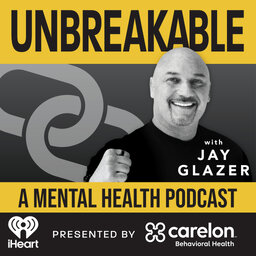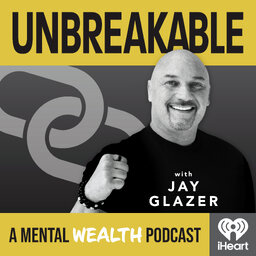Unbreakable Episode 132 - Jeremy Lin (LINSANITY)
Welcome to Unbreakable! A mental wealth podcast hosted by Fox NFL Insider Jay Glazer. On today’s episode, Jay hits the hardwood with NBA Champion and New York Knicks Legend Jeremy Lin. From the couches to penthouses, Jeremy pulls back the curtain and paints a picture of what peak LINSANITY was really like. Lin opens up about his mental health struggles and talks about the tools he uses/learned to combat/manage them. He explains that it’s important to focus on what really matters and why open conversations with loved ones are key. Plus, he shares his incredible Unbreakable Moment!
Follow, rate & review Unbreakable with Jay Glazer here!
https://link.chtbl.com/unbreakablewithjayglazer
#fsr
In 2 playlist(s)
Unbreakable with Jay Glazer: A Mental Wealth Podcast
In this new podcast, which is an extension of his widely-acclaimed, best-selling book “Unbreakable,”…Social links
Follow podcast
Recent clips

Unbreakable Episode 135 - Darren Waller
25:30

Unbreakable Episode 134 - Bret Michaels
32:04

Unbreakable Episode 133 - Mike Swick
37:34
 Unbreakable with Jay Glazer: A Mental Wealth Podcast
Unbreakable with Jay Glazer: A Mental Wealth Podcast
